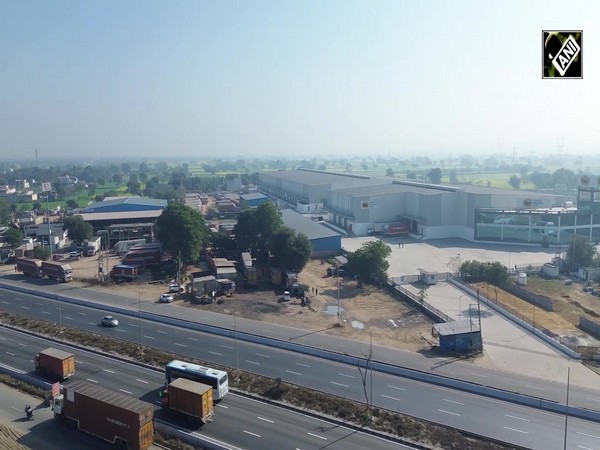China underreporting severity of air pollution levels, says study
Apr 23, 2021

Beijing [China], April 23 : Air pollution data in China may have been manipulated by local officials, according to a new study conducted by Harvard and Boston University researchers.
According to Fox News, the analysis, published on Wednesday, found statistically significant differences between data from monitoring stations run by local Chinese officials in five cities - Beijing, Shenyang, Shanghai, Guangzhou and Chengdu - and readings collected by US embassies.
Harvard University's Jesse Turiel and Boston University's Robert Kaufmann examined the measurement of PM2.5, particulate matter that's linked to lung cancer, asthma and heart disease, recorded by Chinese and U.S. stations between January 2015 and June 2017.
They discovered temporary divergences between the two data sets that were more likely to occur during periods of high air pollution, suggesting that "government-controlled stations systematically underreport pollution levels when local air quality is poor."
China is the world's largest carbon producer, closely followed by the U.S, according to Fox News.
"Local bureaucrats face immense pressure to report the 'correct' numbers to their higher-ups, and some resort to colluding with other local officials or misreporting data... Given these institutional incentives to cheat, official air pollution data in China often is treated with a high degree of skepticism, by both outside observers and the general public," the researchers wrote.
"Our results strongly suggest that some local Chinese officials continued to misreport measurements of PM2.5 concentrations in many of the country's largest megacities, even after the government's post-2012 policy reforms. Consistent with our findings, in early 2018 the MEE announced that it had caught officials in seven cities manipulating data during the previous year," the researchers said.
Moreover, in April 2018, the central Ministry of Public Security (MPS) charged sixteen local officials in Linyi, Shanxi Province, with tampering with air quality monitors 53 times between April 2017 and March 2018, they added.
"Our findings of ongoing air quality data misreporting in China are not surprising because the government's post-2012 reforms did not eliminate incentives for local officials to cheat. Although requiring hourly, real-time measurements and abolishing the blue sky day metric eliminated manipulation around a given API threshold, local EPBs still face enormous pressure to report pollutant concentrations that decline continuously year-over-year," they noted.
Xi's claim that China would achieve carbon neutrality by 2060, and to peak carbon emissions by 2030 comes as coal generation rose in China in 2020, while falling elsewhere -- making it the only G20 nation to see a significant jump in coal-fired generation.
According to a report by research from Ember, a London-based energy and climate research group, China is now responsible for more than half (53 per cent) of the world's coal-fired electricity, up from 44 per cent in 2015.
Over the years, China has received applause for its clean environmental speeches at climate change and environmental events. However, ground reality narrates a different story as China continues to be the largest coal producer globally.
Citing China Coal Transport and Distribution Association's (CCTDA) data, the Asia Times reported that the coal used by coastal power plants at five major Chinese utilities hit 4,88,800 tonnes during the last week of March, more than double from a record low seen on February 10 last year.
Despite making tall speeches about the road to have a clean environment, the Chinese government reportedly plans to add coal storage facilities in 2020 to ensure stockpiles at or above 15 days' normal supply for coal-driven power plants.



















